In his first public remarks since offering to acquire 70% of Barnes & Noble's stock for $17 a share (Shelf Awareness, May 20, 2011), John Malone, chairman of Liberty Media, said the deal "would be a bit of a flier for us, on whether or not Barnes & Noble can play competitively with the likes of Apple and Amazon in the digital transformation. That's really the bet."
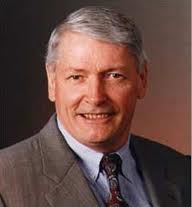 The New York Times reported Malone also acknowledged that bricks-and-mortar stores will have their role: "We believe that publishers like the existing physical bookstores, they like having a partner in distribution who lives and dies in the book business as opposed to just commoditizing it, which these other players do. So I think you go into it with an edge in your relationship with the publishers."
The New York Times reported Malone also acknowledged that bricks-and-mortar stores will have their role: "We believe that publishers like the existing physical bookstores, they like having a partner in distribution who lives and dies in the book business as opposed to just commoditizing it, which these other players do. So I think you go into it with an edge in your relationship with the publishers."
Comparing the challenges faced by the bookselling business to an epidemic, he observed: "It's kind of like the people that survive a small pox epidemic. If you're still alive, well, maybe you got a chance of living a long life. But on the digital side, which is the only way for Liberty to play in this game, you have to believe that this is going to be a very important business, broadly defined, and you can keep market share that makes your presence in this business a good return."
The Wall Street Journal wrote that Liberty's chairman expressed confidence his company will be able to work well with B&N's chairman and largest shareholder, Leonard Riggio. Malone said if Liberty "couldn't work with Len, we wouldn't do a deal. We are not into hostile deals."
B&N issued a statement noting that Riggio "couldn't think of a better partner than John Malone and a finer group of executives than the team at Liberty."
---
 Amazon plans to open a fourth distribution center in Arizona. While state officials celebrated the completion of a 1.2 million-square-foot facility, which opened last year, Amazon said it will open a similar-sized facility in Phoenix this fall.
Amazon plans to open a fourth distribution center in Arizona. While state officials celebrated the completion of a 1.2 million-square-foot facility, which opened last year, Amazon said it will open a similar-sized facility in Phoenix this fall.
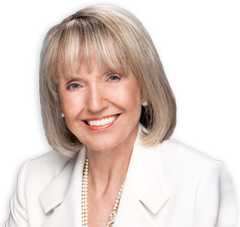 "Amazon is a quality employer, so I'm proud they’ve chosen to invest in Arizona," said Governor Jan Brewer. "The company’s newest facility means even more jobs for Arizona citizens, and is one more sign that our economy is on the right track. The recent launch of the Arizona Commerce Authority and announcements like this by Amazon prove that Arizona is open for business."
"Amazon is a quality employer, so I'm proud they’ve chosen to invest in Arizona," said Governor Jan Brewer. "The company’s newest facility means even more jobs for Arizona citizens, and is one more sign that our economy is on the right track. The recent launch of the Arizona Commerce Authority and announcements like this by Amazon prove that Arizona is open for business."
The Associated Press (via Forbes) noted that, with the announcement earlier this week of a new fulfillment center in Plainfield, Ind., Amazon is sending a message by "steering business toward states that are not pressing the Internet retail giant on collecting taxes."
---
 Amazon can keep its "Appstore" for the time being. In an opinion filed with the U.S. District Court for Northern California, Judge Phyllis Hamilton denied Apple's request for a preliminary injunction that would have forced Amazon to remove the name while awaiting a trademark-infringement trial in October, CNet News reported.
Amazon can keep its "Appstore" for the time being. In an opinion filed with the U.S. District Court for Northern California, Judge Phyllis Hamilton denied Apple's request for a preliminary injunction that would have forced Amazon to remove the name while awaiting a trademark-infringement trial in October, CNet News reported.
Hamilton ruled that Apple "has not established a likelihood of success on its dilution claim. First, Apple has not established that its 'App Store' mark is famous, in the sense of being 'prominent' and 'renowned.' The evidence does show that Apple has spent a great deal of money on advertising and publicity, and has sold/provided/furnished a large number of apps from its AppStore, and the evidence also reflects actual recognition of the 'App Store' mark. However, there is also evidence that the term 'app store' is used by other companies as a descriptive term for a place to obtain software applications for mobile devices. "
---
"A Minimal, Futuristic Library. And--Gasp--It’s Got Books!" Fast Company's headline aptly described Japan's Kanazawa Umimirai Library, which "is like an art gallery for dead trees. It's got a minimal white reading room that stretches 148 feet by 148 feet and has precisely one decorative element, the stacks."
Coelacanth K&H Architects noted that the design strategy was to surround visitors with "a treasure trove of books" and evoke their "overwhelming physical presence, something that the convenience of electronic and digital books cannot offer."
---
Surfing the crime wave. The Wall Street Journal reported that "as print sales continue to plummet, several publishing houses are launching mystery imprints in hopes of gaining a toehold in the thriving crime-fiction market." The Journal focused on Little, Brown's new suspense imprint Mulholland as well as MysteriousPress.com, where Otto Penzler, owner of New York's Mysterious Bookshop, "is teaming up with Open Road Media to digitally publish out of print and backlisted books of iconic writers such as James Ellroy and Donald Westlake" as well as some original works.
---
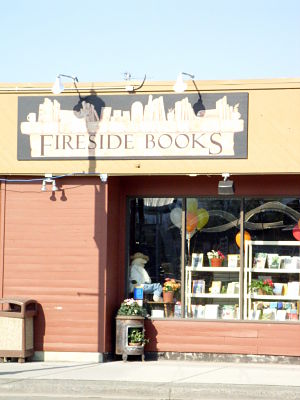 In the decade since co-owner David Cheezem opened Fireside Books, Palmer, Alaska, he "has learned quite a bit about his dual role as small town merchant and community busybody," the Anchorage Press reported, noting that last fall the bookseller "found himself taking a different public step. Instead of working in the system, he attacked it." Cheezem was one of three bookstore plaintiffs--along with Title Wave Books and Bosco's Comics in Anchorage--in an ACLU suit against the state regarding a censorship law passed by the legislature (Shelf Awareness, September 2, 2010). Last week that law was thrown out by U.S. District Court Judge Ralph Beistline.
In the decade since co-owner David Cheezem opened Fireside Books, Palmer, Alaska, he "has learned quite a bit about his dual role as small town merchant and community busybody," the Anchorage Press reported, noting that last fall the bookseller "found himself taking a different public step. Instead of working in the system, he attacked it." Cheezem was one of three bookstore plaintiffs--along with Title Wave Books and Bosco's Comics in Anchorage--in an ACLU suit against the state regarding a censorship law passed by the legislature (Shelf Awareness, September 2, 2010). Last week that law was thrown out by U.S. District Court Judge Ralph Beistline.
"There was a part of me that was kind of frightened to put the store's name on this," Cheezem said of the lawsuit. But The Press wrote that "he referred to the First Amendment as 'that sacred part' of the Constitution which booksellers and librarians defend every day just by doing their jobs. In the end, that seemed more important than keeping his head down in Palmer or the name of his bookstore out of a federal court file."
"I feel that if you are a bookseller, and you are professional, you stand up for the First Amendment. It's not just about moving product," he said.
---
 Bookselling This Week profiled Barrington Books, Barrington, R.I., which was opened 25 years ago by Hamilton Allen as a Little Professor franchise, became an indie under its current name 10 years later and has been owned by Dana Schectman since 2008.
Bookselling This Week profiled Barrington Books, Barrington, R.I., which was opened 25 years ago by Hamilton Allen as a Little Professor franchise, became an indie under its current name 10 years later and has been owned by Dana Schectman since 2008.
"The bookstore has been a staple in the community for over 25 years," said Schectman. "It was a store that was always more than just a bookstore, it was a community meeting place, and that was my motivation for taking it over when [Allen] was retiring. I was so afraid that someone else would buy it and change it."
Store manager Jennifer Massotti added that the bookshop "has always been focused on customer service, and we will continue to do so going forward. While books will always be the soul of the business, our offerings continue to evolve as the needs of our customer base evolve."
---
The future of Obelisk bookstore, San Diego, Calif., is in doubt after a fire Wednesday severely damaged the historical building in which it is located. San Diego Gay & Lesbian News reported that owner Brett Serwalt "is still gathering information from the city Fire-Rescue Department about the extent of damage to his bookstore."
On Facebook, Serwalt wrote: "As I get more details I'll keep you all posted. Shortly after the fire was finally extinguished, a structural engineer suggested that the building might not need to come down. This surprised me. I'm hoping they let me inside this morning so I can finally see how bad it is."
---
"Is it a town without a bookstore?" asked the Santa Rosa Press Democrat's Chris Smith, who offered his "worst-case scenario: We all shop online at home, get great deals and avoid paying sales tax, then walk quickly through our lifeless downtowns with wired plugs blocking our ears."
Smith cited a dispatch to customers from Andy Weinberger, co-owner of Reader’s Books, Sonoma, Calif., as an important call for more indie awareness. "Are we a community or just a collection of houses where people sleep at night?" Weinberger wrote. "Do we care about our local shops and services or are we just looking for what's cheap and convenient and tax-free?"
---
Literary games for bored book nerds were featured by Flavorwire, which hoped to "introduce a few games into your summer repertoire, so you have something to do if you're bored at your beach house (or more likely, during the long train ride to a beach). Like Prince says, you don't have to be rich to be our girl... or well-read to play our literary games."
---
Audiobook Trailer of the Day: Here’s a lesson in reverse psychology for reluctant (boy) summer readers... a joint venture from Roaring Brook Press and Brilliance Audio for their release of Charlie Joe Jackson's Guide to Not Reading, narrated by MacLeod Andrews, and written by author Tommy Greenwald and Curious City’s Kirsten Cappy.
---
Cool and touching video of the day: Abrams employees, including president and CEO Michael Jacobs, have joined other companies and institutions and made a video for the It Gets Better Project. See it here.
---
Kate Lloyd has been promoted to assistant director of publicity at Scribner. She was formerly publicity manager and joined the company in May 2010.
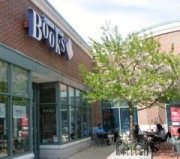 "So, fellow local writers, when we go to a reading at Porter Square Books, we should buy something, even if it's not the book being featured. No one begrudges buying a ticket when we go to the movies, but for some reason we think spending an hour and a half at a bookstore listening to something we'll never hear anywhere else should be free. We should buy the books we want to own at PSB. And we should tell our local readers why they should buy our book at PSB, even if it costs more. Almost any book you can get from Amazon, including e-books, you can get from PSB: if it's not on the shelves today, you can order it. I'm sure most of us follow these rules already, but in tough times, for writers AND bookstores, they seem worth repeating. The future reading you save may be your own."
"So, fellow local writers, when we go to a reading at Porter Square Books, we should buy something, even if it's not the book being featured. No one begrudges buying a ticket when we go to the movies, but for some reason we think spending an hour and a half at a bookstore listening to something we'll never hear anywhere else should be free. We should buy the books we want to own at PSB. And we should tell our local readers why they should buy our book at PSB, even if it costs more. Almost any book you can get from Amazon, including e-books, you can get from PSB: if it's not on the shelves today, you can order it. I'm sure most of us follow these rules already, but in tough times, for writers AND bookstores, they seem worth repeating. The future reading you save may be your own."









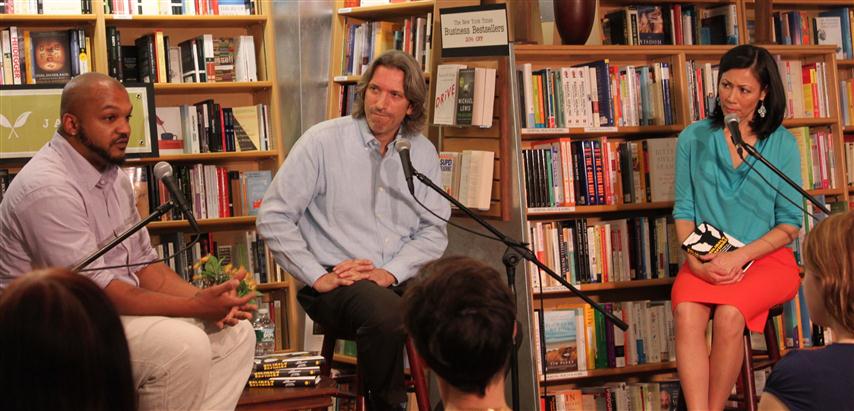

 The
The  Amazon plans to open a fourth distribution center in Arizona. While state officials celebrated the completion of a 1.2 million-square-foot facility, which opened last year, Amazon said it will open a similar-sized facility in Phoenix this fall.
Amazon plans to open a fourth distribution center in Arizona. While state officials celebrated the completion of a 1.2 million-square-foot facility, which opened last year, Amazon said it will open a similar-sized facility in Phoenix this fall.  "Amazon is a quality employer, so I'm proud they’ve chosen to invest in Arizona," said Governor Jan Brewer. "The company’s newest facility means even more jobs for Arizona citizens, and is one more sign that our economy is on the right track. The recent launch of the Arizona Commerce Authority and announcements like this by Amazon prove that Arizona is open for business."
"Amazon is a quality employer, so I'm proud they’ve chosen to invest in Arizona," said Governor Jan Brewer. "The company’s newest facility means even more jobs for Arizona citizens, and is one more sign that our economy is on the right track. The recent launch of the Arizona Commerce Authority and announcements like this by Amazon prove that Arizona is open for business." In the decade since co-owner David Cheezem opened
In the decade since co-owner David Cheezem opened 

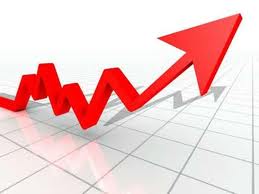 Retail sales in June "blew by analyst expectations and suggested that consumers, at least when they were shopping, were feeling good," the
Retail sales in June "blew by analyst expectations and suggested that consumers, at least when they were shopping, were feeling good," the  Coverage of yesterday's Harry Potter and the Deathly Hallows, Part 2 London premiere included
Coverage of yesterday's Harry Potter and the Deathly Hallows, Part 2 London premiere included 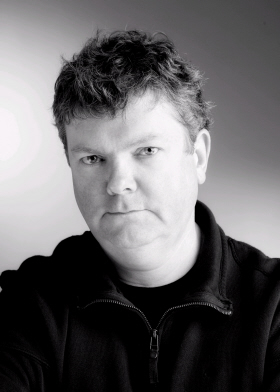 Alan Glynn is the author of The Dark Fields (the basis for the film Limitless, starring Bradley Cooper and Robert De Niro) and Winterland (Picador, July 2011). His next book will be Bloodland (Picador, January 2012). He is married with two children and lives in Dublin.
Alan Glynn is the author of The Dark Fields (the basis for the film Limitless, starring Bradley Cooper and Robert De Niro) and Winterland (Picador, July 2011). His next book will be Bloodland (Picador, January 2012). He is married with two children and lives in Dublin.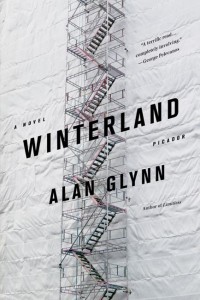 Book you're an evangelist for:
Book you're an evangelist for: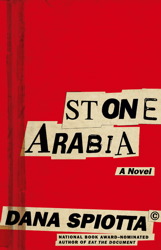 Like her National Book Award-nominated Eat the Document, Dana Spiotta's new novel has its roots in the 1970s. This time, however, instead of focusing on the political currents of that era, she's turned her attention to the intimate details of family life, the slow erosion of dreams and the faint persistence of hope.
Like her National Book Award-nominated Eat the Document, Dana Spiotta's new novel has its roots in the 1970s. This time, however, instead of focusing on the political currents of that era, she's turned her attention to the intimate details of family life, the slow erosion of dreams and the faint persistence of hope.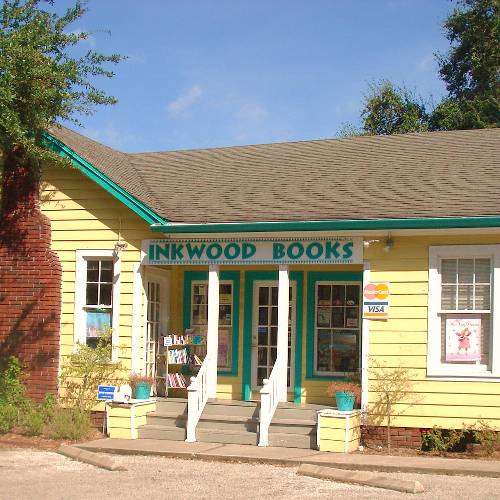 "While reading the new Ken Bruen mystery, Headstone, I came to a page (actually two: 37 and 153) where the main character, Jack Taylor, lists a few of his favorite authors. I found that I quickly jotted down new names to try out, and then realized I was basically being handsold books by an alcoholic, Irish P.I. who is a fictional character. It made me think of all the other times favorite characters in books will refer to favorite authors or titles (or music--Dennis Lehane and George Pelecanos, and so many of the Brit and Irish writers, mention music)."
"While reading the new Ken Bruen mystery, Headstone, I came to a page (actually two: 37 and 153) where the main character, Jack Taylor, lists a few of his favorite authors. I found that I quickly jotted down new names to try out, and then realized I was basically being handsold books by an alcoholic, Irish P.I. who is a fictional character. It made me think of all the other times favorite characters in books will refer to favorite authors or titles (or music--Dennis Lehane and George Pelecanos, and so many of the Brit and Irish writers, mention music)." 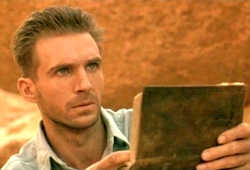 Sometimes fictional handselling even reaches beyond individual readers to become an international phenomenon. When Michael Ondaatje's The English Patient was published in 1992, Almásy's deep attachment to The Histories by Herodotus--for its content as well as its service as a scrapbook and journal--fostered renewed interest in the ancient work. It was probably less than coincidental that a year after the release of the film adaptation, a new Everyman's Library edition was published.
Sometimes fictional handselling even reaches beyond individual readers to become an international phenomenon. When Michael Ondaatje's The English Patient was published in 1992, Almásy's deep attachment to The Histories by Herodotus--for its content as well as its service as a scrapbook and journal--fostered renewed interest in the ancient work. It was probably less than coincidental that a year after the release of the film adaptation, a new Everyman's Library edition was published.